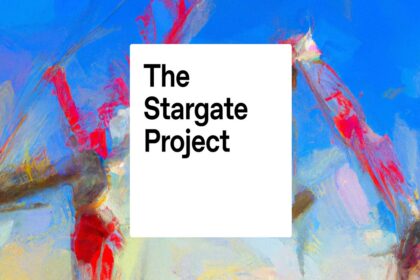On December 20, 2024, the European Commission (EC) approved Nvidia’s acquisition of Israeli AI startup Run:ai, signaling a pivotal development in the data center and AI technology landscape. The approval marks the conclusion of an extensive review process, with the EC stating that the merger does not pose any significant competition concerns within the European Economic Area (EEA).
The EC’s Key Findings
The European Commission’s investigation focused on potential impacts on competition in the European market. Despite Nvidia’s dominant position in the global GPU market—particularly for data center applications—the EC found that the acquisition would not create any substantial competitive threat. In particular, the commission noted that Nvidia would lack both the technical ability and incentive to reduce the compatibility of its GPUs with competing orchestration software, such as Run:ai’s platform.
Run:ai, though growing, does not hold a significant market share in the field of GPU orchestration software. The EC also highlighted that customers have access to a broad array of alternative solutions, ensuring that the acquisition would not limit innovation or consumer choice within the data center sector.
What Is Run:ai and Why Did Nvidia Pursue the Acquisition?
A Deep Dive into Run:ai’s Role in AI and Data Center Infrastructure
Run:ai is an Israeli startup that specializes in optimizing and managing distributed AI workloads. Its platform, built on Kubernetes, provides an open-source solution for scaling AI applications efficiently across large infrastructures, including GPU clusters in data centers. This platform enables companies to pool and manage GPUs, optimizing computational resources for complex tasks such as machine learning and AI model training.
By supporting major Kubernetes variants and integrating with third-party AI tools, Run:ai’s platform has positioned itself as an important player in the AI operations space. The company’s technology helps organizations streamline their infrastructure management, maximizing performance and reducing costs associated with inefficient hardware utilization.
Nvidia’s Strategic Move in Acquiring Run:ai
Nvidia, a dominant force in the GPU industry, is clearly aiming to bolster its position in the AI infrastructure market. The acquisition of Run:ai aligns with Nvidia’s strategy to expand beyond its core GPU business and solidify its leadership in the AI and data center sectors. By integrating Run:ai’s orchestration platform with its own GPU technologies, Nvidia seeks to offer a more comprehensive solution for data center customers, particularly those focused on AI and machine learning workloads.
In March 2024, Nvidia’s interest in acquiring Run:ai first emerged, and by April, the deal was confirmed. Although early reports suggested that the deal could be valued at around $1 billion, the final financial details were not disclosed.
What Does This Acquisition Mean for the Data Center Industry?
Impact on Data Center Operations and AI Workloads
The merger of Nvidia and Run:ai has the potential to significantly impact the way data centers manage and optimize AI workloads. As AI continues to gain traction in industries ranging from finance to healthcare, the need for specialized infrastructure that can efficiently run AI models is growing rapidly.
By integrating Run:ai’s orchestration technology with its own GPU products, Nvidia can provide a unified platform for managing data center resources, enhancing both performance and scalability. This could enable more efficient deployment of GPU clusters, allowing organizations to handle larger and more complex AI models without the need for excessive infrastructure investments.
Strengthening Nvidia’s Position in the AI Market
Nvidia has long been the leader in the GPU space, and the acquisition of Run:ai gives the company a more robust offering in AI infrastructure management. As AI workloads become more demanding, companies need powerful GPUs coupled with effective orchestration solutions to ensure optimal performance. Nvidia’s strategic acquisition allows it to offer a holistic solution that can scale with the growing demands of AI, positioning the company to capture even more market share in this rapidly expanding sector.
European Commission’s Stance on the Acquisition
Lack of Competitive Concerns
In its statement, the European Commission emphasized that Nvidia’s acquisition of Run:ai would not result in anti-competitive outcomes. The commission acknowledged Nvidia’s dominant position in the GPU market but concluded that the combined entity would not be able to impede competition. Nvidia, it noted, would have neither the “technical ability nor the incentive” to hinder the compatibility of its GPUs with other orchestration software solutions in the marketplace.
Moreover, the EC pointed out that while Run:ai’s software has potential, it currently holds a relatively small market share in GPU orchestration. Additionally, the presence of other competitors offering similar services ensures that customers have sufficient alternatives. This means that the acquisition is unlikely to stifle competition or innovation in the sector.
Further Implications for the European Market
The approval of this merger could also have broader implications for future acquisitions in the AI and data center space. As Nvidia continues to solidify its leadership, its increased focus on AI infrastructure may prompt competitors to explore similar acquisition strategies or forge new partnerships to remain competitive. It also highlights the European Commission’s recognition of the rapid growth of AI technologies and its willingness to support consolidation in markets that are evolving quickly.
Key Takeaways
- European Commission Approval: Nvidia’s acquisition of Run:ai was approved by the European Commission on December 20, 2024, after a review found no significant competition concerns in the EEA.
- Run:ai’s Role: Run:ai is an Israeli startup focused on optimizing AI workloads across distributed GPU clusters, which Nvidia seeks to integrate into its broader GPU and AI infrastructure strategy.
- Impact on AI Infrastructure: The acquisition strengthens Nvidia’s position in AI infrastructure management, allowing it to offer a more comprehensive platform for data center customers handling AI workloads.
- Future Implications: The approval of this acquisition signals a shift toward further consolidation in the AI and data center markets, which may influence the competitive landscape in the coming years.
Frequently Asked Questions (FAQ)
1. What is the European Commission’s role in approving acquisitions like Nvidia’s acquisition of Run:ai?
The European Commission reviews acquisitions to ensure they do not create anti-competitive effects within the European Economic Area. It evaluates whether the merger will significantly limit competition or reduce consumer choice.
2. What does Run:ai’s technology offer to the data center industry?
Run:ai provides an orchestration platform that helps manage and optimize GPU clusters for AI workloads. Its Kubernetes-based solution enables efficient pooling and sharing of GPU resources across large-scale infrastructure, making it easier to handle complex AI tasks.
3. How does Nvidia’s acquisition of Run:ai benefit its customers?
The acquisition will allow Nvidia to offer a unified solution for managing GPU resources and AI workloads, enhancing performance, scalability, and efficiency in data center operations.
4. Will Nvidia’s dominance in the GPU market lead to less competition in AI infrastructure?
According to the European Commission, Nvidia’s acquisition of Run:ai does not raise competition concerns. There are sufficient alternatives available for customers, and Nvidia is unlikely to hinder competition by restricting the compatibility of its GPUs with other orchestration software.
5. What impact will this acquisition have on Nvidia’s future growth?
The acquisition positions Nvidia to better serve the growing demand for AI infrastructure, enabling the company to offer more comprehensive solutions and further solidify its leadership in the AI and data center markets.



















